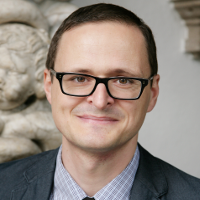
Markus Strohmaier is a Full Professor for Methods and Theories of Computational Social Sciences and -Humanities at RWTH Aachen (Germany), and an Advisor for Computational Social Science at GESIS - Leibniz Institute for the Social Sciences, and a Distinguished Visiting Scholar at Stanford University's Media-X program (since 2010). He has been a visiting scientist/professor at Stanford University (USA) during the 2011/12 academic year, at XEROX Parc (2009, 2010-2011) and at RWTH Aachen (2009).
Markus Strohmaier received his PhD from the Faculty of Computer Science at Graz University of Technology in 2004. From 2006-2007, he was a Postdoctoral Fellow at the Dept. of Computer Science at University of Toronto working with Prof. Eric Yu on agent-oriented and social modeling. In 2012, he completed his habilitation at Graz University of Technology. His main research interests include Web-Science, Social and Semantic Computing, Social Software Engineering, Networks and Data Mining. To date, he has been awarded substantial research funding (either as PI, Co-PI or key scientist) from national and European funding agencies. He teaches computer science courses both on an undergraduate and graduate level and has taught classes with more than 200 students.
Dirk Brockmann is a professor at the Institute for Biology at Humboldt University of Berlin and the Robert Koch Institute, Berlin. Brockmann is known for his work in complex systems, complex networks, computational epidemiology, human mobility and anomalous diffusion.
Brockmann studied physics and mathematics at Duke University and the University of Göttingen where he received his degree in theoretical physics in 1995 and his PhD in 2003. After postdoctoral positions at the Max Planck Institute for Dynamics and Self-Organization, Göttingen he became Associate Professor in the Department of Engineering Sciences and Applied Mathematics at Northwestern University in 2008. In 2013 he returned to Germany where he became Professor at the Institute for Biology at Humboldt University of Berlin. Brockmann worked on a variety of topics ranging from computational neuroscience, anomalous diffusion, Levy flights, human mobility, computational epidemiology, and complex networks.

Noshir Contractor is the Jane S. & William J. White Professor of Behavioral Sciences in the McCormick School of Engineering & Applied Science, the School of Communications and the Kellogg School of Management at Northwestern University. He is the Director of the Science of Networks in Communities (SONIC) research center and holds a PhD from the Annenberg School of Communication at the University of Southern California and a Bachelor’s Degree in electrical engineering from the Indian Institute of Technology in Madras (Chennai).

Northwestern University
Richard L. Thomas Professor of Leadership and Organizational Change, Kellogg School of Management
Co-Director, Northwestern Institute on Complex Systems (NICO)
Faculty Director, Kellogg Architectures of Collaboration Initiative (KACI)
Professor of Industrial Engineering and Management Sciences, McCormick School
Professor of Sociology, Weinberg College
Brian Uzzi is the Richard L. Thomas Professor of Leadership at the Kellogg School of Management, Northwestern University. He also co-directs NICO, the Northwestern Institute on Complex Systems and Data Science, is Director of the Kellogg Architectures of Collaboration Initiative (KACI), and is professor of Sociology and of Industrial Engineering and Management Science at the McCormick School of Engineering. His research on social networks and human achievement has appeared in Nature, Science, PNAS, Harvard Business Review, and leading sociology, management, and computer science journals and proceedings. He is also the author of three books, including: Athena Unbound: The Advancement of Women in Science and Technology. (Cambridge University Press 2000) and Enhancing the Effectiveness of Team Science. (National Academy of Sciences 2015). Brian has a PhD in Sociology from Stony Brook University and an MS in Organizational Psychology from Carnegie Mellon University.

Aaron Clauset is an Assistant Professor of Computer Science and Core Faculty in the BioFrontiers Institute at the University of Colorado, and is External Faculty at the Santa Fe Institute. Dr. Clauset is a computer scientist who both develops and applies advanced statistical methods for analyzing and modeling the structure and dynamics of complex systems, including social networks, competitive social systems, and violent political conflicts. He is an internationally recognized as an expert on network science, data science, and the statistics of rare events. He also serves as an Associate Editor at Science Advances and the Journal of Complex Networks.

Sandra González-Bailón is an assistant professor at the Annenberg School for Communication, University of Pennsylvania, and research associate at the Oxford Internet Institute. She obtained her DPhil (PhD) in Sociology from the University of Oxford.
Professor González-Bailón's research areas include network science, data mining, computational tools, and political communication. At Annenberg, she leads the DiMeNet (link: http://dimenet.asc.upenn.edu/about/) research group. Her applied research has focused on the analysis of social media, political protests, mobilization dynamics, information diffusion, and opinion trends. She is the author of the forthcoming book Decoding the Social World: When Data Science meets Communication (MIT Press) and co-editor of the also forthcoming Handbook of Networked Communication (OUP, co-edited with Brooke Foucault-Welles). She is an associate editor of the journal Social Networks.

Assistant Professor Brian C. Keegan is a computational social scientist whose research is at the intersection of human-computer interaction, network science and data science. His research explores the structure and dynamics of large-scale online communication and collaboration using socio-technical system log data. This work is motivated by his belief that social life rarely unfolds at a steady state; bursts, sequences, and other dynamics play crucial roles in structuring the social world around us. Before joining CU Boulder, Keegan was a research associate at the Harvard Business School’s HBX online learning platform and a postdoctoral researcher in computational social science at Northeastern University. He received his PhD in media, technology and society from Northwestern University’s School of Communication. He also earned SB degrees in Mechanical Engineering and Science, Technology and Society from the Massachusetts Institute of Technology.
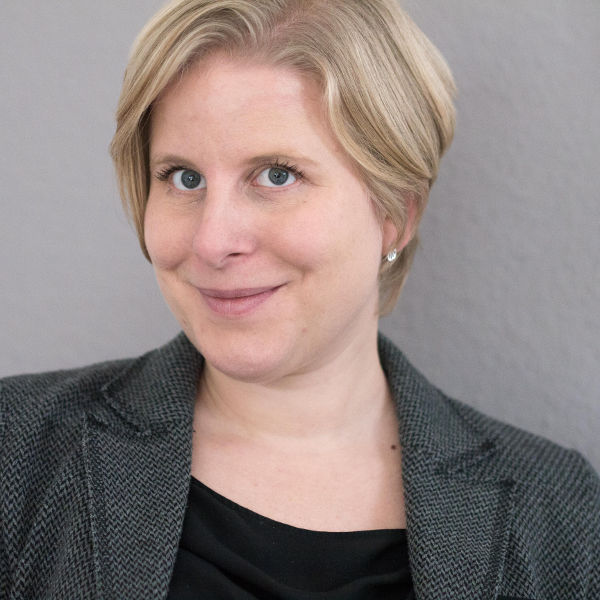
Katrin Weller is a senior researcher at GESIS and head of the team “Social Analytics and Services” within the Computational Social Science department. In 2015, she was one of the inaugural researchers to receive the John W. Kluge Center’s Fellowship in Digital Studies and conducted a research stay at the Library of Congress, Washington D.C. She received her PhD in Information Science from Heinrich-Heine-University Düsseldorf in 2010. She has organised several scientific workshops and conferences and is frequently serving in programme committees for international conferences and journals. Her research focuses on social media usage in different contexts, especially scholarly communication, as well as on interdisciplinary approaches to study social media and research ethics. She is co-editor of Twitter and Society (Peter Lang, 2014).
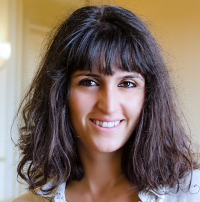
Ceren Budak is an Assistant Professor at the University of Michigan School of Information. Before that, she was a Postdoctoral Researcher at Microsoft Research New York. she received my PhD from the Computer Science Department at University of California, Santa Barbara in December 2012. she received her Bachelors degree from Computer Science Dept. @Bilkent University in Turkey in 2007.
Her research interests lie in the area of computational social science; a discipline at the intersection of computer science, statistics, and the social sciences. She is particularly interested in applying large scale data analysis techniques to study problems with social, political, and policy implications.


Markus Strohmaier is a Full Professor for Methods and Theories of Computational Social Sciences and -Humanities at RWTH Aachen (Germany), and an Advisor for Computational Social Science at GESIS - Leibniz Institute for the Social Sciences, and a Distinguished Visiting Scholar at Stanford University's Media-X program (since 2010). He has been a visiting scientist/professor at Stanford University (USA) during the 2011/12 academic year, at XEROX Parc (2009, 2010-2011) and at RWTH Aachen (2009).
Markus Strohmaier received his PhD from the Faculty of Computer Science at Graz University of Technology in 2004. From 2006-2007, he was a Postdoctoral Fellow at the Dept. of Computer Science at University of Toronto working with Prof. Eric Yu on agent-oriented and social modeling. In 2012, he completed his habilitation at Graz University of Technology. His main research interests include Web-Science, Social and Semantic Computing, Social Software Engineering, Networks and Data Mining. To date, he has been awarded substantial research funding (either as PI, Co-PI or key scientist) from national and European funding agencies. He teaches computer science courses both on an undergraduate and graduate level and has taught classes with more than 200 students.
Dirk Brockmann is a professor at the Institute for Biology at Humboldt University of Berlin and the Robert Koch Institute, Berlin. Brockmann is known for his work in complex systems, complex networks, computational epidemiology, human mobility and anomalous diffusion.
Brockmann studied physics and mathematics at Duke University and the University of Göttingen where he received his degree in theoretical physics in 1995 and his PhD in 2003. After postdoctoral positions at the Max Planck Institute for Dynamics and Self-Organization, Göttingen he became Associate Professor in the Department of Engineering Sciences and Applied Mathematics at Northwestern University in 2008. In 2013 he returned to Germany where he became Professor at the Institute for Biology at Humboldt University of Berlin. Brockmann worked on a variety of topics ranging from computational neuroscience, anomalous diffusion, Levy flights, human mobility, computational epidemiology, and complex networks.

Noshir Contractor is the Jane S. & William J. White Professor of Behavioral Sciences in the McCormick School of Engineering & Applied Science, the School of Communications and the Kellogg School of Management at Northwestern University. He is the Director of the Science of Networks in Communities (SONIC) research center and holds a PhD from the Annenberg School of Communication at the University of Southern California and a Bachelor’s Degree in electrical engineering from the Indian Institute of Technology in Madras (Chennai).

Northwestern University
Richard L. Thomas Professor of Leadership and Organizational Change, Kellogg School of Management
Co-Director, Northwestern Institute on Complex Systems (NICO)
Faculty Director, Kellogg Architectures of Collaboration Initiative (KACI)
Professor of Industrial Engineering and Management Sciences, McCormick School
Professor of Sociology, Weinberg College
Brian Uzzi is the Richard L. Thomas Professor of Leadership at the Kellogg School of Management, Northwestern University. He also co-directs NICO, the Northwestern Institute on Complex Systems and Data Science, is Director of the Kellogg Architectures of Collaboration Initiative (KACI), and is professor of Sociology and of Industrial Engineering and Management Science at the McCormick School of Engineering. His research on social networks and human achievement has appeared in Nature, Science, PNAS, Harvard Business Review, and leading sociology, management, and computer science journals and proceedings. He is also the author of three books, including: Athena Unbound: The Advancement of Women in Science and Technology. (Cambridge University Press 2000) and Enhancing the Effectiveness of Team Science. (National Academy of Sciences 2015). Brian has a PhD in Sociology from Stony Brook University and an MS in Organizational Psychology from Carnegie Mellon University.
Matthew O. Jackson is the William D. Eberle Professor of Economics at Stanford University, an external faculty member of the Santa Fe Institute, and a fellow of CIFAR. He received his Ph.D. from Stanford University in 1988. Jackson has been honored with the Social Choice and Welfare Prize,the B.E.Press Arrow Prize for Senior Economists, and a Guggenheim Fellowship. He has served as co-editor of Games and Economic Behavior, the Review of Economic Design, and Econometrica. Jackson co-teaches a popular game theory course on Coursera.org, along with Kevin Leyton-Brown and Yoav Shoham.
Jackson's research concerns game theory, microeconomic theory, and the study of social and economic networks.
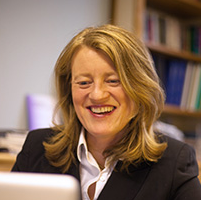
Helen Margetts is the Director of the Oxford Internet Institute, and a Professor of Society and the Internet at the University of Oxford. Dr. Margetts is a political scientist specializing in digital era governance and politics, investigating political behavior, digital government and government-citizen interactions in the age of the Internet, social media and big data. She has published over a hundred books, articles and major research reports in this area. In 2003, Dr. Margetts was co-named as winner of the Political Scientists Making a Difference award from the United Kingdom Political Studies Association, in part for a series of policy reports on government and Internet for the UK National Audit Office. Dr. Margetts continues working to maximize the policy impact of her research and sits on the digital advisory board of the UK Government Digital Service and the World Economic Forum Global Agenda Council on the Future of Government. She is the Editor-in-Chief of the journal Policy and Internet, a fellow of the Academy of Social Sciences.
Duncan Watts is a principal researcher at Microsoft Research and a founding member of the MSR-NYC lab. From 2000-2007, he was a professor of Sociology at Columbia University, and then, prior to joining Microsoft, a principal research scientist at Yahoo! Research, where he directed the Human Social Dynamics group . He has also served on the external faculty of the Santa Fe Institute and is currently a visiting fellow at Columbia University and at Nuffield College, Oxford.
His research on social networks and collective dynamics has appeared in a wide range of journals, from Nature, Science, and Physical Review Letters to the American Journal of Sociology and Harvard Business Review. He is also the author of three books: Six Degrees: The Science of a Connected Age (W.W. Norton, 2003) and Small Worlds: The Dynamics of Networks between Order and Randomness (Princeton University Press, 1999), and most recently Everything is Obvious: Once You Know The Answer (Crown Business, 2011)
He holds a B.Sc. in Physics from the Australian Defence Force Academy, from which he also received his officer’s commission in the Royal Australian Navy, and a Ph.D. in Theoretical and Applied Mechanics from Cornell University. He lives in New York City.

GESIS - Leibniz Institute for the Social Sciences, Cologne, Germany
Main conference logistics

GESIS - Leibniz Institute for the Social Sciences, Cologne, Germany
Main conference logistics

GESIS - Leibniz Institute for the Social Sciences, Cologne, Germany
Main conference logistics
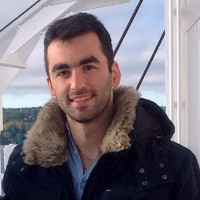
GESIS - Leibniz Institute for the Social Sciences, Cologne, Germany
Conference website
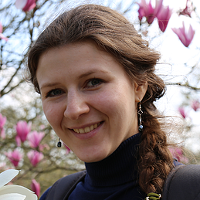
GESIS - Leibniz Institute for the Social Sciences, Cologne, Germany
Social media